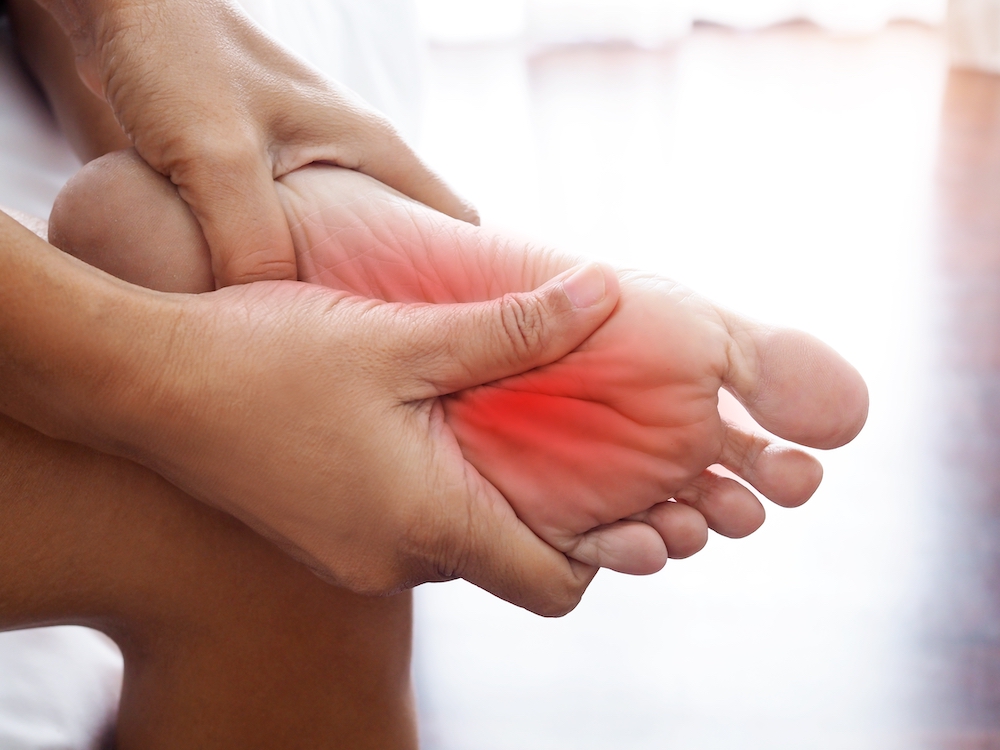
Our bodies are packed with nerves. Nerves are bundles of fibers that both receive and send messages between the body and brain and are a key part of the nervous system, which is responsible for every one of our body functions. There are also several different types of nerves:
Sensory nerves carry messages that provide sensory feedback, such as your hand touching a hot plate which sends a message to your brain telling your hand to drop it, or the smell of smoke enabling you to identify that something is burning.
Motor nerves carry messages that tell your body to move in certain ways.
Autonomic nerves are responsible for subconscious acts like breathing and bladder control. For example, your autonomic nerves will cause you to sweat if your body temperature is too high.
Peripheral neuropathy is a condition that develops when the nerves in the extremities of the body – the hands, feet, and arms – become damaged, causing the patient to experience a range of unpleasant symptoms.
What Causes Peripheral Neuropathy?
Peripheral neuropathy usually occurs when there is damage to the nerves in the limbs. This damage can be caused by a variety of different things, including:
Physical injuries, such as a crush injury or severe laceration
Autoimmune conditions, like rheumatoid arthritis or lupus
Living with an inherited condition, such as Charcot-Marie-Tooth
Viral infections, such as hepatitis C or shingles
Drinking excessive amounts of alcohol
Experiencing side effects from taking specific medications
Diabetes, in which case the condition is sometimes called diabetic polyneuropathy
However, there are many cases where the exact cause of peripheral neuropathy isn’t ever discovered.
What are the Symptoms of Peripheral Neuropathy?
There are a range of symptoms of peripheral neuropathy. You may experience some or all of them, they may come and go or remain consistent. These symptoms include:
Tingling in the feet and hands
Sharp, stabbing pains in the hands, arms, feet, or legs
Feeling as though you are wearing a very tight pair of socks or gloves
Buzzing sensations in various areas of your body
Numbness affecting the hands or feet
Limbs that feel heavy and weak
Oftentimes you end up dropping things/experiencing a loss of coordination
Your skin becomes thinner
A lower blood pressure than normal
Extreme sensitivity to touch
If you notice that you are experiencing any of these symptoms, it’s advisable to speak to a medical professional. You can then be assessed, where it is likely that you will be given a diagnosis of peripheral neuropathy.
Can Neuropathy be Treated?
The good news is that most neuropathies can be improved using chiropractic treatment. This is because chiropractic treatment focuses primarily on realigning the spine. The spine houses the spinal cord, the main information highway for the central nervous system and which branches off into peripheral nerves. When the spine is out of alignment, it places pressure on the nerves that branch out of the spinal cord, causing problems with the way that they send messages to the peripheral nervous system.
Chiropractic treatment, which involves the manual manipulation of the body to bring the spine into alignment and reduce pressure on surrounding structures, enables oxygenated blood and nutrients to flow more effectively around the body, healing any damaged nerves and restoring them so they can function more efficiently again. This can help to reduce pain and other symptoms associated with peripheral neuropathy.
For more information about how chiropractic treatment can help with peripheral neuropathy, please schedule an appointment with our friendly chiropractic team. Call Elevate Life Health Center in Kansas City, Missouri at 816-339-5900 today.









